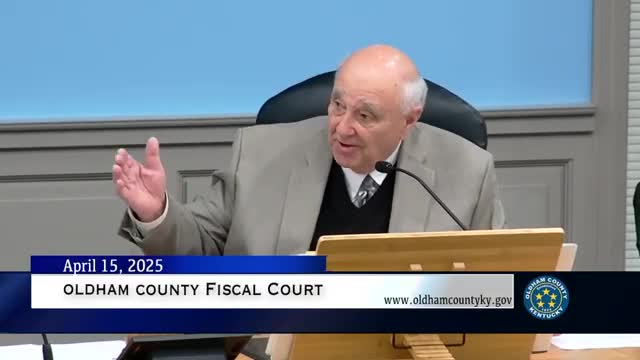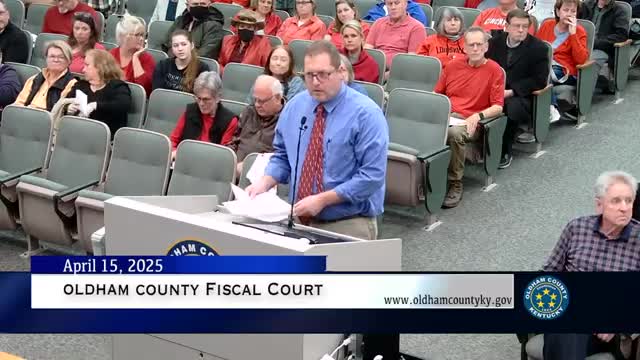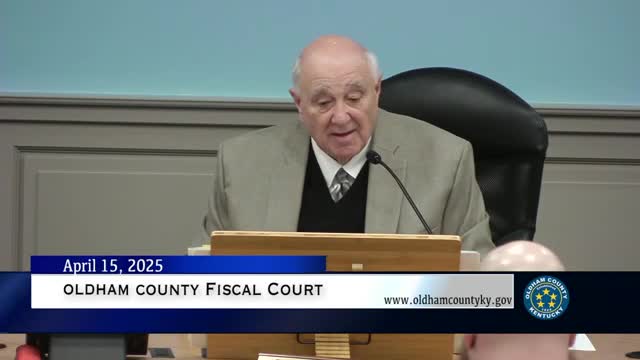Article not found
This article is no longer available. But don't worry—we've gathered other articles that discuss the same topic.

Votes at a glance: Oldham County Fiscal Court actions — moratorium referral, fireworks contract, roads, sign and routine business

Residents criticize county detention center ties with ICE; sheriff says Oldham County has no 287(g) agreement

